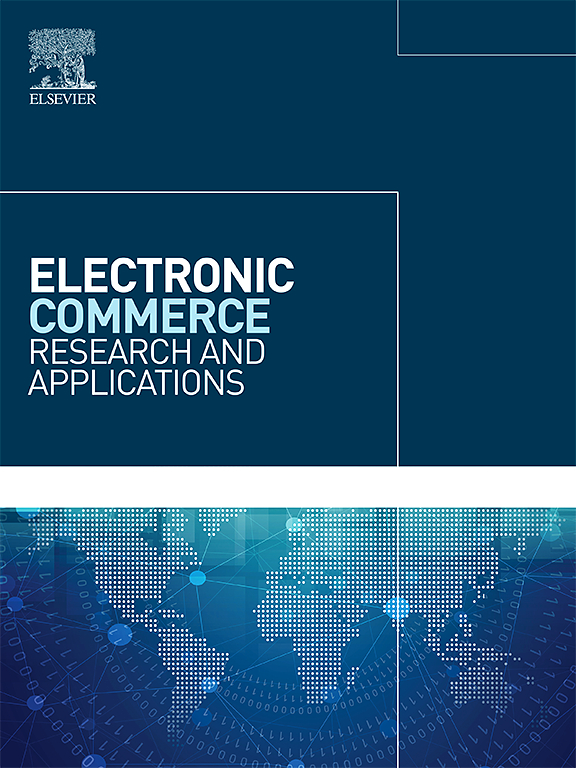从知识跟踪到偏好跟踪:捕捉动态用户偏好以进行个性化推荐
IF 5.9
3区 管理学
Q1 BUSINESS
Electronic Commerce Research and Applications
Pub Date : 2025-06-30
DOI:10.1016/j.elerap.2025.101527
引用次数: 0
摘要
个人偏好会随着时间而改变。虽然顺序推荐因适应不断变化的用户偏好而受到关注,但它们在细粒度、组件级别上难以识别用户偏好。本文介绍了一种新的方法,即偏好追踪,其灵感来自于最初在教育领域发展起来的知识追踪概念。知识跟踪通过与问答对和知识组件的交互,动态估计学生的知识状态,根据估计的知识状态预测正确回答练习的可能性。类似地,偏好跟踪在用户与内容互动的过程中持续估计用户的偏好状态,根据估计的偏好状态预测用户是否会喜欢特定的电影。我们的实证评估表明,基于贝叶斯知识跟踪(BKT)的偏好跟踪不仅提供了可比较的预测性能,而且在组件层面上有效地捕获了用户的偏好状态。此外,基于深度学习的基于知识跟踪(DLKT)的偏好跟踪在没有预定义电影组件的情况下运行,优于最近基于深度学习的推荐模型,揭示了其提供更准确和细致入微推荐的潜力。本文章由计算机程序翻译,如有差异,请以英文原文为准。
From knowledge tracing to preference tracing: Capturing dynamic user preferences for personalized recommendation
Individual preferences change over time. While sequential recommenders have gained attention for accommodating changing user preferences, they have struggled to identify users’ preferences at a granular, component-wise level. This paper introduces a novel approach called preference tracing, inspired by the concept of knowledge tracing, originally developed in the educational domain. Knowledge tracing dynamically estimates a student’s knowledge state through interactions with question–answer pairs and knowledge components, predicting the likelihood of correctly answering an exercise based on the estimated knowledge state. Similarly, preference tracing continuously estimates a user's preference state as they engage with content over time, predicting whether a user will enjoy a specific movie based on the estimated preference state. Our empirical evaluations demonstrate that Bayesian knowledge tracing (BKT)-based preference tracing not only delivers comparable predictive performance but also effectively captures users’ preference states at a component-wise level. Moreover, deep learning-based knowledge tracing (DLKT)-based preference tracing, which operates without predefined movie components, outperforms recent deep learning-based recommendation models, unveiling its potential to provide more accurate and nuanced recommendations.
求助全文
通过发布文献求助,成功后即可免费获取论文全文。
去求助
来源期刊

Electronic Commerce Research and Applications
工程技术-计算机:跨学科应用
CiteScore
10.10
自引率
8.30%
发文量
97
审稿时长
63 days
期刊介绍:
Electronic Commerce Research and Applications aims to create and disseminate enduring knowledge for the fast-changing e-commerce environment. A major dilemma in e-commerce research is how to achieve a balance between the currency and the life span of knowledge.
Electronic Commerce Research and Applications will contribute to the establishment of a research community to create the knowledge, technology, theory, and applications for the development of electronic commerce. This is targeted at the intersection of technological potential and business aims.
 求助内容:
求助内容: 应助结果提醒方式:
应助结果提醒方式:


